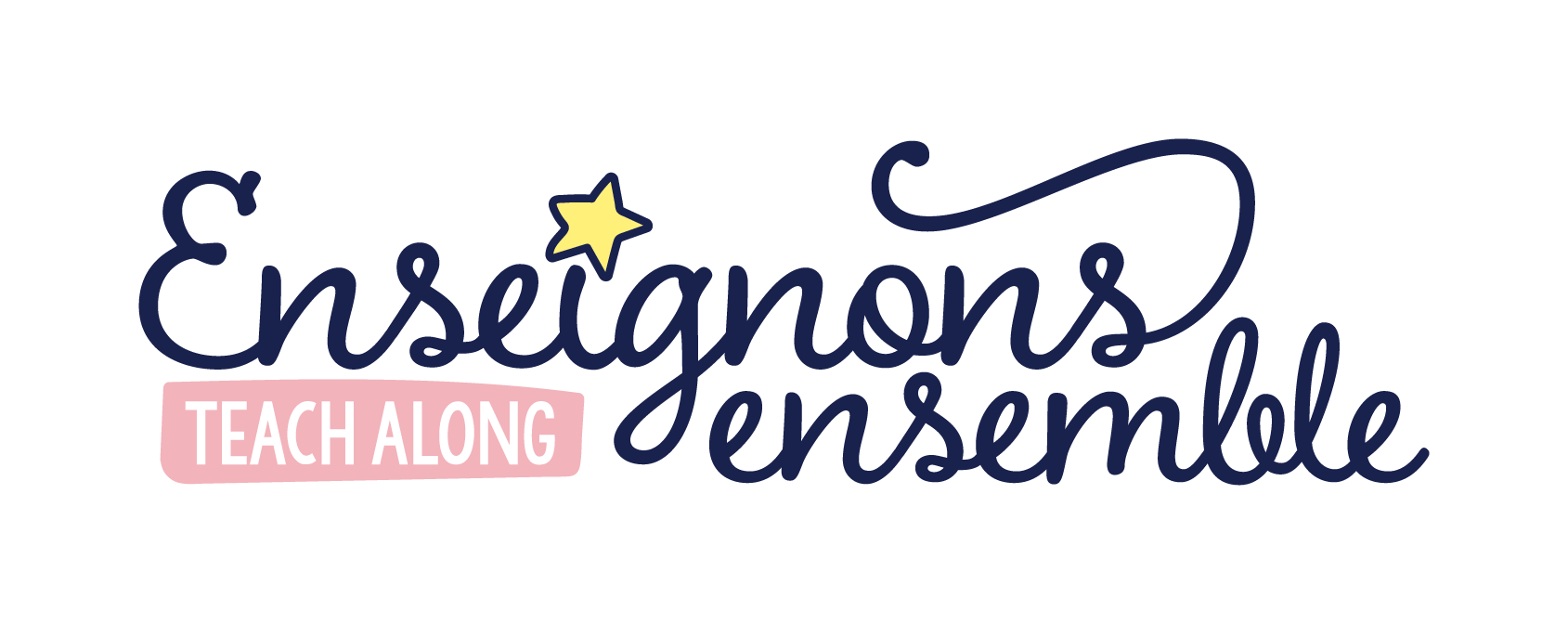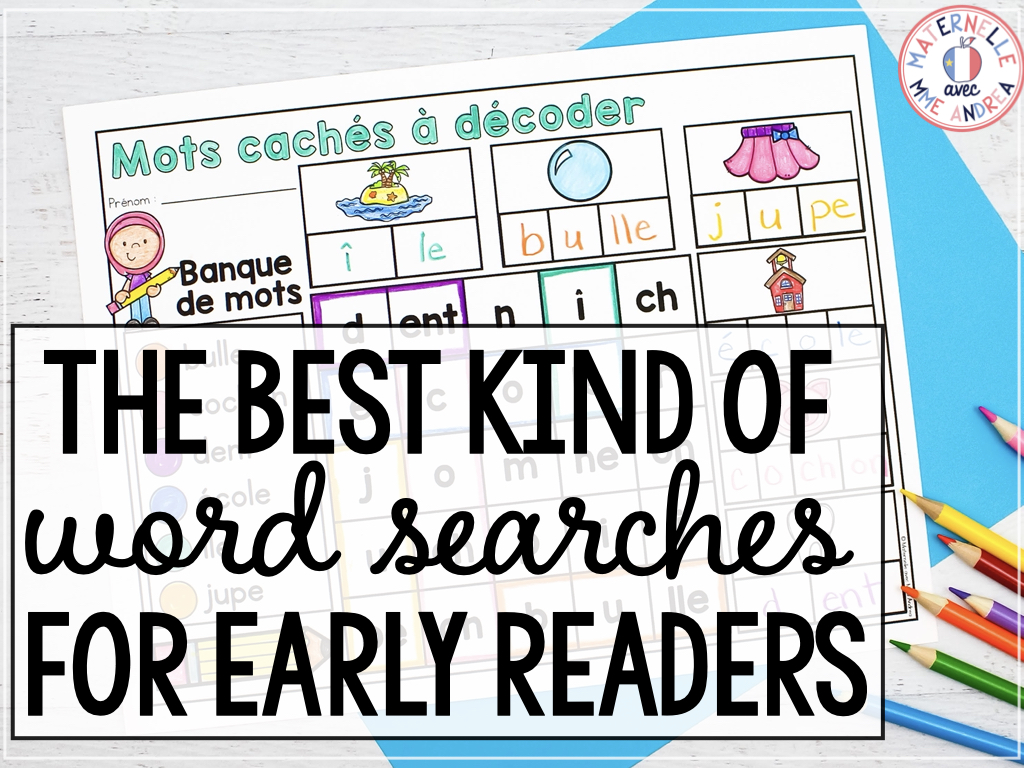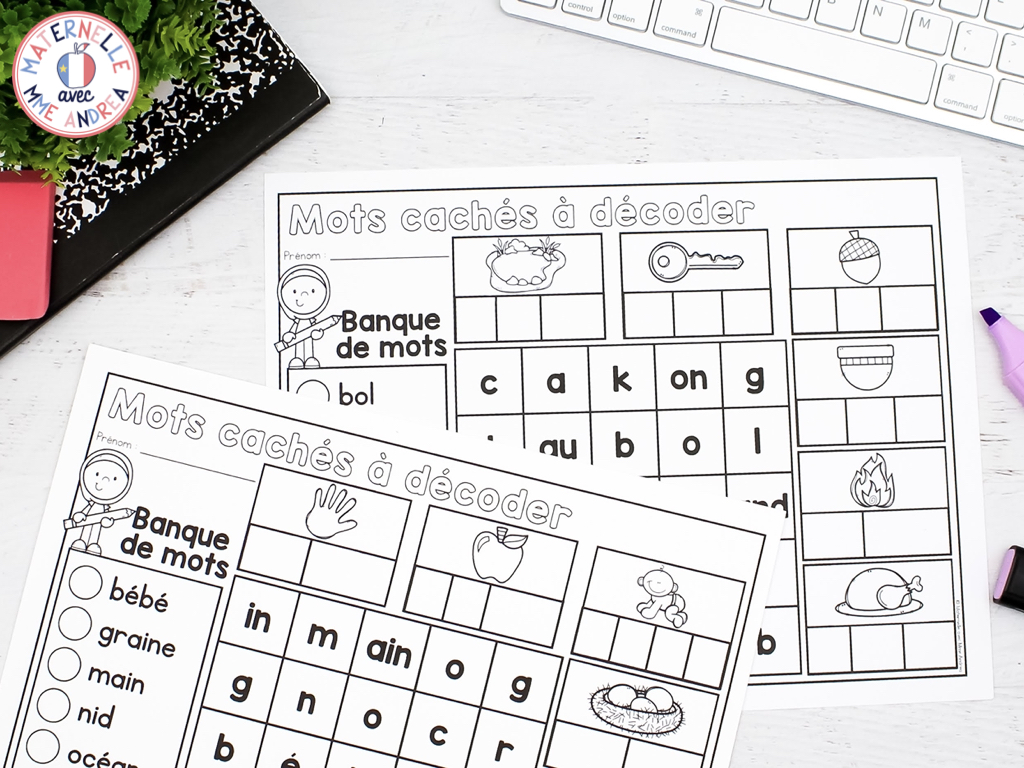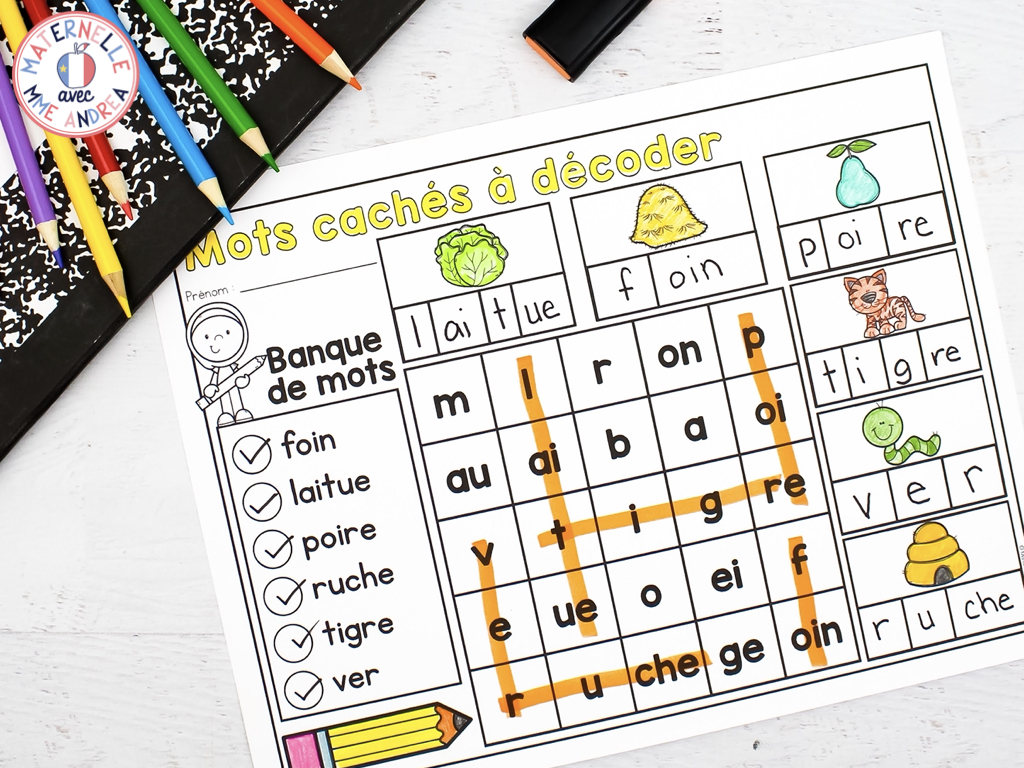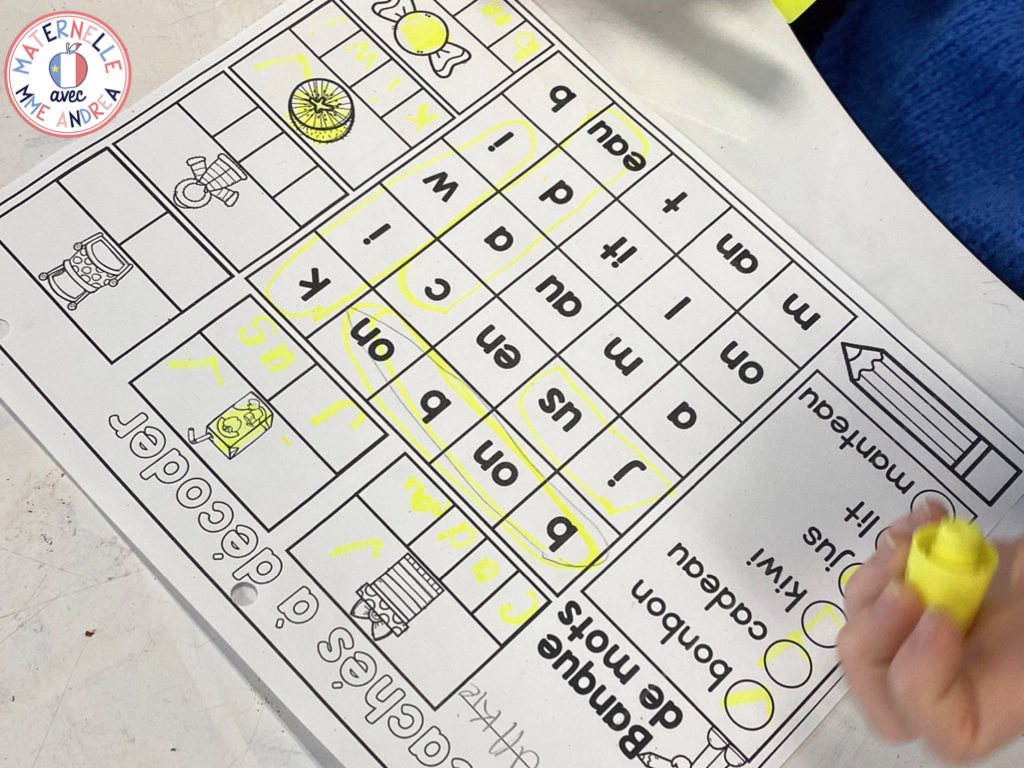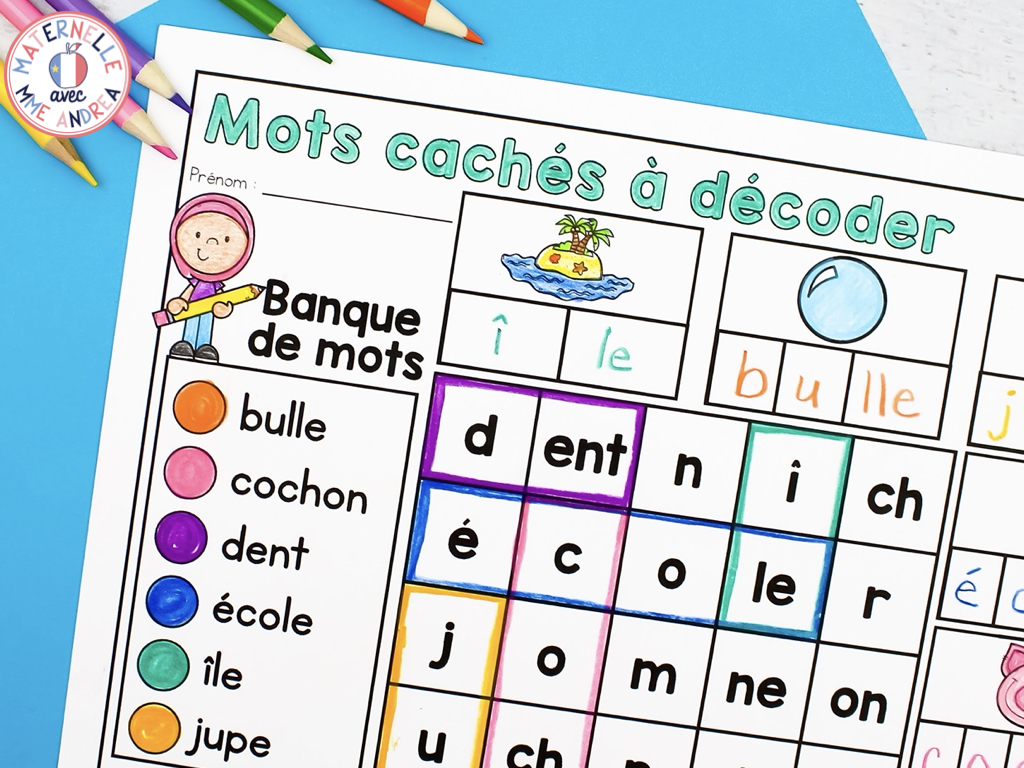As a kid, I loved all kinds of word games, word searches, activity packs, etc. I would spend HOURS filling out books full of them. I am so excited to see my four year old daughter begin to enjoy them, too. That is why I decided to make these special word searches for early readers!
My students often love them as well. Often, we will receive little activity booklets for things like fire safety, Remembrance Day, etc. that they enjoy completing.
I always give my students some time to complete their packets, but over time, I started noticing something about word searches for early readers. Many of my students could complete the word searches by just looking and finding the letters of each word in the right order… but they couldn’t actually read any of the words.
They had no idea what they were finding!
Or, if the words were illustrated, they would be able to guess based on the picture… but they weren’t using any letter/phonics knowledge at all.
Since I’m always thinking about how I can improve my teaching and my students’ learning activities, I wanted to take my students’ love of word searches, but create some that would actually make them use their little brains for reading/decoding – not just copying.
So, I put on my thinking cap and got to work creating the best kind of word searches for early readers!
The problem with word searches
Many of my students in grade one know most or all of their letter sounds.
The problem, of course, when it comes to decoding is that they often try to go letter-by-letter, instead of sound-by-sound. In French, so many words have les sons composés or silent letters – it’s almost impossible to decode letter by letter!
I felt like, since that there was one letter per box in all the word searches we were doing, the son composés were essentially cut apart. This made it even worse – students were really seeing each letter separately, rather than as part of a sound.
So, I decided to fix that little problem by putting one sound per BOX in my word searches, rather than one letter!
Getting students to actually READ the words in the word search
The next problem I often would run into is students just copying and not even trying to read the words in the word search.
So, I decided to add a “next step” to my word searches for early readers.
I decided to choose words that can be easily illustrated, and include a picture of each word from the word bank… but not beside the word in the word bank! I wanted my students to be able to link the words they find (identified by decoding them) to the picture clues, and then WRITE each word again, segmenting it into sounds.
Putting it all together
To do my word searches, students first choose a word from the word bank (written normally).
Then, they find and circle it in the puzzle (separated into one sound per box).
They read the word by reading each sound, one by one, and then “saying it fast’ to “fusionne” the sounds together.
Once they know what the word says, they find the picture of it.
Finally, they rewrite the word, sound by sound (one sound/box) below the correct picture.
My grade one students LOVED this activity this year! The first time or two we did them was a challenge, but once they caught on, they ran with it.
I loved watching them turn a challenge into something pretty easy for them, and I loved seeing their reading/decoding skills grow each time we did this activity.
When time permitted, I would often have my students read the words that they found for me, segmenting them sound-by-sound slowly, and then putting them together quickly to make the word.
As you can see in the picture above, I also let them use highlighters to circle words if they wanted – extra motivating! ;)
Want to give these word searches for early readers a try?
If you’d like to try this kind of word search, I’ve got a freebie for you! Just add your name and email at this link to receive a free copy of the word search pictured directly above.
If you already know you love them and want to grab the entire set, you can see them in my TPT store at THIS LINK.
If your students love them too, let me know – I’d love to hear about it!
Looking for more blog posts similar to this one? Check these out:

